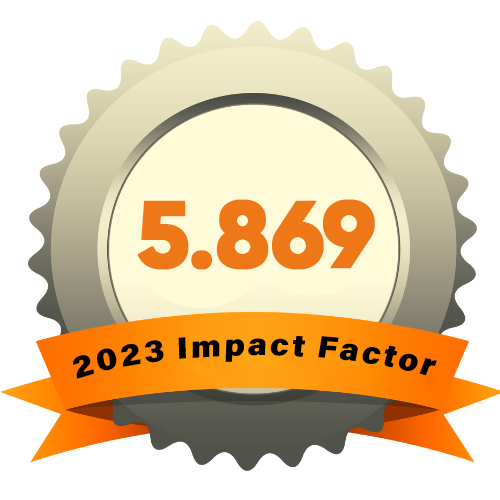A COMPREHENSIVE APPROACH TO TEACHING LISTENING COMPREHENSION AND ITS STAGES
Abstract
This article explores the multifaceted process of teaching listening comprehension and delineates its stages. Through an examination of pedagogical strategies, theoretical frameworks, and practical applications, this research aims to provide educators with insights and methodologies to enhance their teaching practices and optimize students' learning outcomes in listening comprehension.
References
Dunkel. 1991. Listening in the native and second/foreign language: Toward an integration of research and practice. TESOL Quarterly 25(3), 431–457.
James Asher. 1977. Learning Another Language Through Actions: The Complete Teacher’s Guidebook. Los Gatos. CA: Sky Okas Productions.
Jack Richards. 1983. Listening comprehension: Approach, design, procedure. TESOL Quarterly 25(3). 407–430.
Krashen. 1982. Principles and Practice in Second Language Acquisition. Pergamon Press.
Nunan. 1991. Language Teaching Methodology: A Textbook for Teachers. Prentice Hall.
Ne’matovna, R. Z. (2024). Problems of emotional intelligence stability in the formation of individual values. Academia Repository, 5(3), 218-220.
Bakhronovna, R. M. (2023). The Theory And Experience Of The Formation Of Professional Value Criteria In The Continuous Education Of The Future Primary School Teacher. Boletin de Literatura Oral-The Literary Journal, 10(1), 2179-2186.
Baxronovna, R. M. (2023). Developing teacher's skills in using scientific methodological articles in science teaching. International Journal of Advance Scientific Research, 3(09), 122-127.
Baxronovna, R. M. (2023). Boshlang ‘ich ta’limda xorijiy metodikalar asosida o ‘qish savodxonligini oshirish. fan, ta'lim va amaliyotning integrasiyasi, 408-411.
Baxronovna, R. M., & Nishanovich, X. J. (2023). Improving Reading Literacy Using Foreign Methods in Primary Education. Journal of Pedagogical Inventions and Practices, 18, 94-96.
Xamidov, M. (2023). On some similar and different aspects of proverbs and subjects. American Journal of Pedagogical and Educational Research, 15, 66-68.
Kamolova, G. M., Golovko, Y. V. (2023). TEACHING ENGLISH TO LARGE CLASSES. Konferensiya, 1(1), 233-235.
Agzamkhanova, G. R., Golovko, Y. V. (2023). Reasons and techniques to improve academic writing skills. Emergent: Journal of Educational Discoveries and Lifelong Learning (EJEDL), 4(1), 103-109.
Holiqova, D. S. (2023). Methodology of developing students' reading and writing skills based on distance education technologies (in the example of English language materials). Current Issues of Bio Economics and Digitalization in the Sustainable Development of Regions (Germany), 7(2), 75-80.
Holiqova, D. S. (2023). Тенденции развития образования и педагогики. Conference, 1(5), 147-150.
Xalilova, D. (2021). Direct modification of the language in translation. Multicultural Education, 7(7), 71.
Guzal, R. (2024). Prospects for Distance Education. American Journal of Language, Literacy and Learning in STEM Education (2993-2769), 2(2), 105-108.
Rahimova, U. (2019). Lingvopersonologics As A New Direction Of Anthropocentric Linguistics. Scientific Bulletin of Namangan State University, 1(8), 259-265.
Rakhimova, U. (2023). Formal features of the rhyme. Proceedings Of ASAR Internaional Conference, New Deihi, 58-59.
Umurqulov, Z. B. (2020). Comparison in literary text and its linguopoetic value. Karshi State University.
Abdukayumova, N. R. (2023). Pedagogical features of formation of students' creative activity in primary education. Society and innovations, 1(5), 24-28.
Abduvaliev, M. A., Vositov, V. A., & Ibragimova, G. M. (2020). Problems Of Teaching “The Literature Of The Country Whose Language Is Being Learned” And Forming Critical, Creative Thinking Skills And Developing Communication Competences Of Students. Scientific Bulletin of Namangan State University, 2(7), 208-216.
Gapporov, B., Vositov, V., & Ibragimova, G. (2020). TYPOLOGICAL CLASSIFICATION OF DICTIONARIES. Theoretical & Applied Science, (1), 581-584.
Vositov, V. A. (2022). CLASSIFICATION THEORY OF TURKIC BORROWINGS. International Journal of World Languages, 2(3).
Vositov, V. A. (2024). Study of the Historical Process of Turkic Borrowed Words. Excellencia: International Multi-disciplinary Journal of Education (2994-9521), 2(3), 33-35.
Воситов, В. (2024). ОСОБЕННОСТИ ОБРАЗОВАНИЯ ГЛАГОЛОВ ОТ ТЮРКСКИХ СУЩЕСТВИТЕЛЬНЫХ, ЗАИМСТВОВАННЫХ В АНГЛИЙСКИЙ. Редакционная коллегия, 180.












